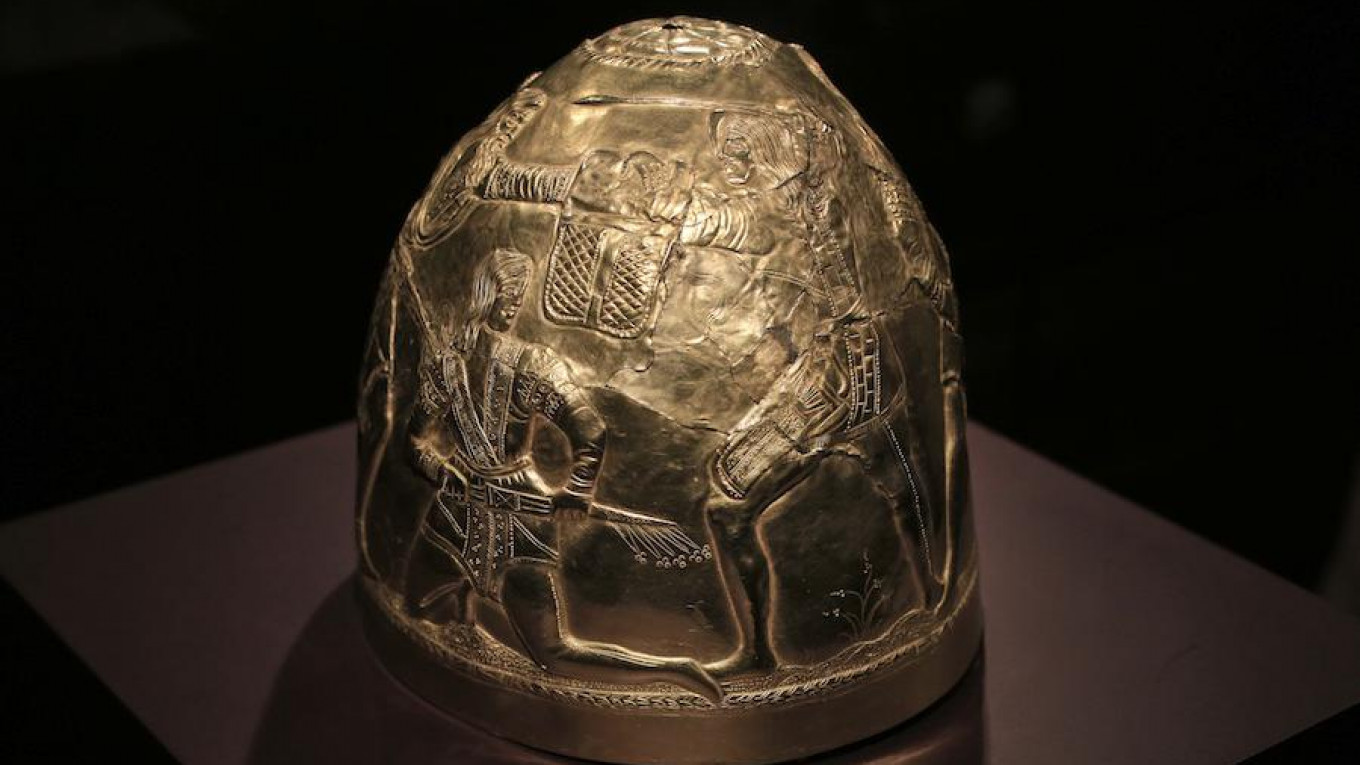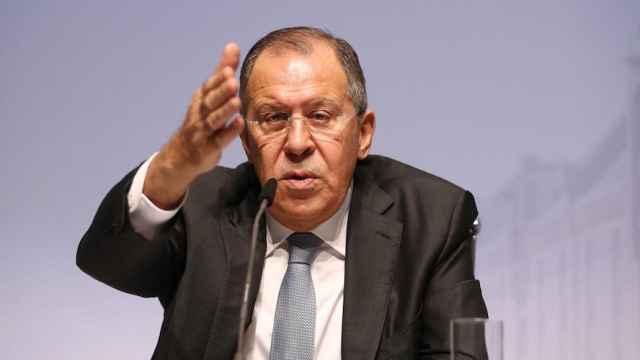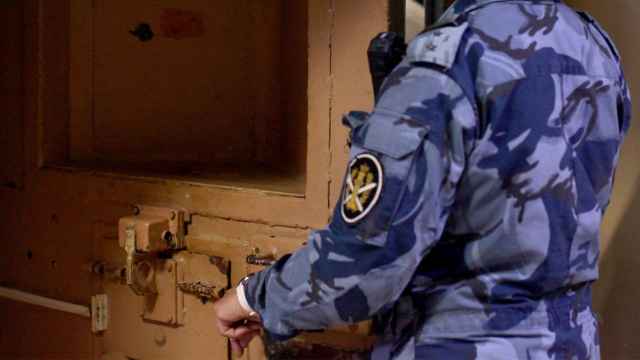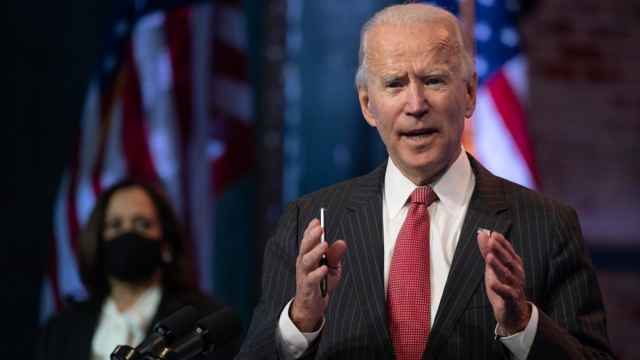Gold artifacts unearthed in Crimea should be handed over to authorities in Kiev, a Dutch court has ruled.
The Scythian treasures, which date back to the 4th century B.C., were loaned to Amsterdam's Allard Pierson Museum prior to Russia's annexation of Crimea in March 2014.
Both Russian authorities in Crimea and Ukrainian officials in Kiev claimed ownership of the items when the Dutch exhibition “Crimea — Gold and Secrets of the Black Sea” ended in May 2014.
The collection, which included ornate golden jewelry, weapons and a ceremonial helmet, had combined items from four Crimean museums and one in Kiev.
The Amsterdam court ruled that the gold should be returned to Ukraine, an internationally-recognized sovereign state.
Kiev was forced to pay the museum €110,000 ($117,000) as a fee for storing the collection for two years.
Ukrainian President Petro Poroshenko said that the ruling confirmed Crimea's status as part of Ukraine.
"The decision not only proves that the Scythian gold is the Ukrainian, it proves that Crimea is Ukrainian Crimea,” he wrote on Facebook.
The head of the Ukrainian Justice Ministry, Pavlo Petrenko, said that he hoped the decision would pave the way for more Ukrainian legal victories against Russian-annexed Crimea.
Crimean politician Konstantin Bakharev сondemned the ruling as “illegal” and “politicized.”
“The Crimean authorities do not agree with this ruling and believe that the exhibits, in their entirety, must be returned to Crimea,” he told the press service of President Putin's United Russia party.
“The Scythian gold is the historical heritage of the Crimean people We will do everything in our power to continue this fight,” he added.
However, not all Russian officials disagreed with the court’s ruling.
Yelena Gagarina, the general director of Moscow's Kremlin museums, said that the decision had been justified.
“It's important to remember in these cases that artifacts are owned by the state, rather than particular museums,” she said.
“These objects were removed from the territory of Ukraine. Any questions about individual items should be resolved when a collection has already been returned to its owner,” she told RIA Novosti.
Crimean authorities have said they will appeal the decision.
A Message from The Moscow Times:
Dear readers,
We are facing unprecedented challenges. Russia's Prosecutor General's Office has designated The Moscow Times as an "undesirable" organization, criminalizing our work and putting our staff at risk of prosecution. This follows our earlier unjust labeling as a "foreign agent."
These actions are direct attempts to silence independent journalism in Russia. The authorities claim our work "discredits the decisions of the Russian leadership." We see things differently: we strive to provide accurate, unbiased reporting on Russia.
We, the journalists of The Moscow Times, refuse to be silenced. But to continue our work, we need your help.
Your support, no matter how small, makes a world of difference. If you can, please support us monthly starting from just $2. It's quick to set up, and every contribution makes a significant impact.
By supporting The Moscow Times, you're defending open, independent journalism in the face of repression. Thank you for standing with us.
Remind me later.






